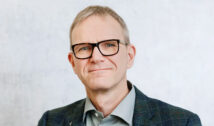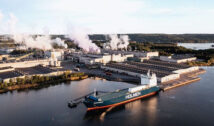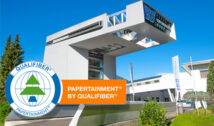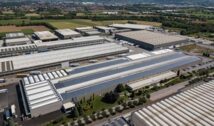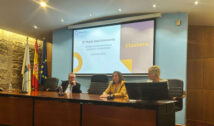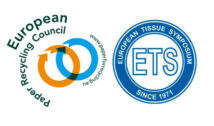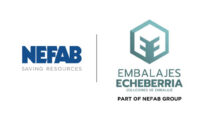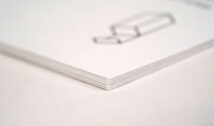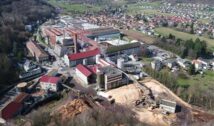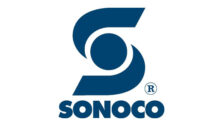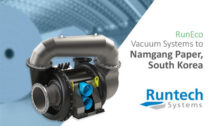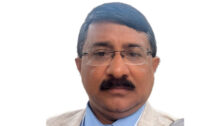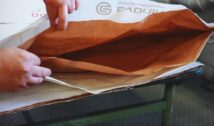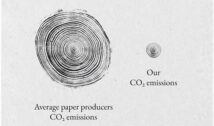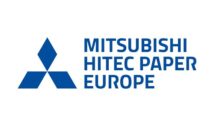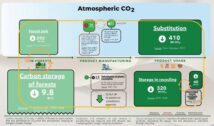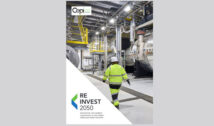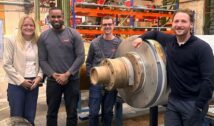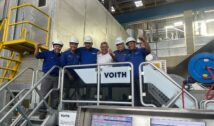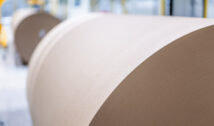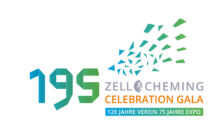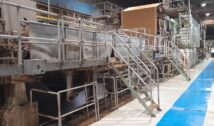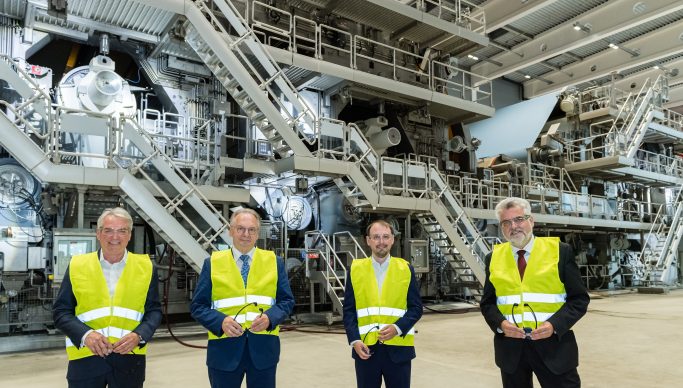
Progroup, the german producer of corrugated board, has an ambitious investment and growth strategy. The company announced today that, following a record-breaking construction and assembly time of just 18 months, its new high-tech paper factory PM3 in Sandersdorf-Brehna (Germany) is starting to operate. At the heart of the factory is one of the world’s most modern and high-performance paper machines for manufacturing environmentally friendly and high-quality containerboard. The plant has an annual capacity of 750,000 tonnes. Progroup is thus increasing its production of containerboard from 1.1 million tonnes to a total of around 1.85 million tonnes annually. The company has been pursuing a Green Hightech strategy since it was founded. Progroup only ever uses recovered paper as the raw material for making paper.
“As a family company, we very much think about the generations to come. The new paper machine is designed so that it will continue to produce containerboard in a sustainable and energy-efficient way for the next 50 to 60 years. This is why we are investing 100 million euros in sustainability measures alone. It means that, when it comes to environmental protection and energy efficiency, the new factory sets the benchmark for the future in the paper industry,” says Maximilian Heindl, Chief Development Officer and member of the Board of Progroup.
Sustainable production thanks to world’s largest recovered paper drum and biological kidney
Around 860,000 tonnes of recovered paper per year will be processed at PM3 to create containerboard. The raw material is treated in a state-of-the-art drum pulper and drum screen. With an overall installed length of 78 metres, this recovered paper drum is the largest of its type in the world. The special design of the drum means that it is particularly good at conserving resources.
To preserve the precious resource of water, Progroup has integrated a new type of circulating water treatment plant. It works like a biological kidney by treating the process water which is used and returning it to the closed circulation system for paper production. Progroup thus reduces the amount of fresh water used by 80 per cent. This is equivalent to 3,750,000 cubic metres of water per year. During this process, recovered paper impurities are biologically degraded and converted into biogas. This means that the plant overall consumes 10% less fossil resources. For the consistent implementation of the sustainability measures, the paper factory was awarded the “Eco-Management and Audit Scheme” (EMAS) certificate from the European Union during the construction phase in January 2020.
Biggest investment project in Saxony-Anhalt creates jobs and long-term prospects
With a total level of investment of 465 million euros, PM3 is currently the biggest investment project in Saxony-Anhalt. Whereas in other regions in Germany employment is stagnant in places, thanks to Progroup the Sandersdorf-Brehna site will see the creation of around 140 direct jobs and up to 350 indirect jobs with great potential for the future.
PM3 is an important part of Progroup’s growth strategy
As one of three paper factories that the company now operates, the new plant forms an important part of Progroup’s consistent “Two Twentyfive” growth strategy: The aim is to double the size of the company by 2025 compared to 2015. In addition to the new paper factory PM3, there are another eight corrugated sheet board plants and more than 500 new employees. The total level of investment for these growth projects is around 1.35 billion euros. Progroup’s plans for new corrugated sheet board plants and paper factories all focus on doing sustainable business. This starts during the construction phase by awarding contracts to regional companies in order to minimise journey distances and thus CO2 emissions. It culminates in investments worth millions in innovative, sustainable technology, as the paper factory PM3 impressively demonstrates.


